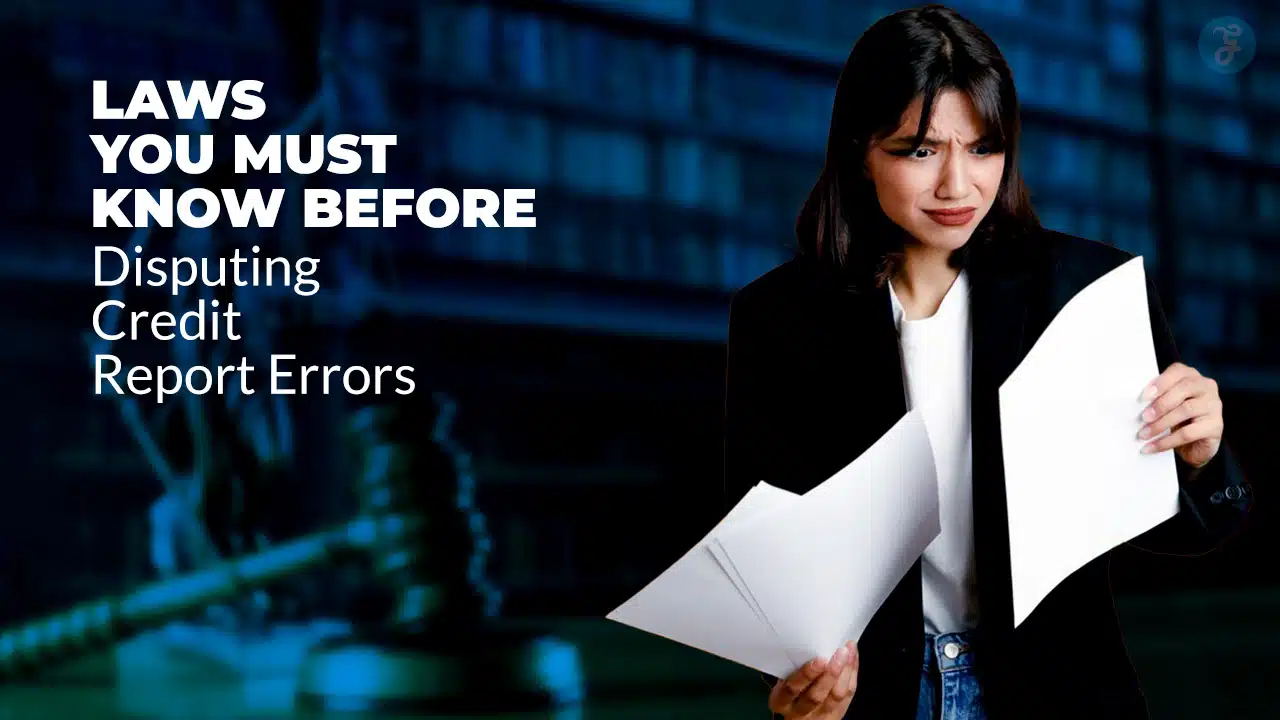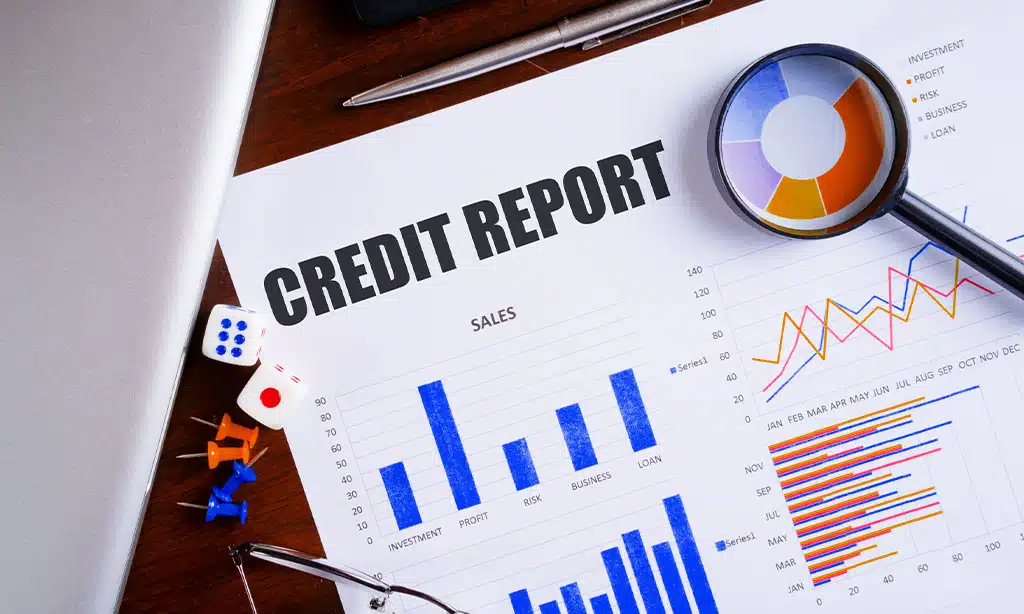Errors on a credit report can hurt your credit score. They may lead to higher interest rates or loan denials. Many people face this problem, and it feels unfair.
The Fair Credit Reporting Act (FCRA) gives you the right to fix these mistakes. You can dispute errors and request an investigation into wrong details in your report.
This blog will share “7 Laws You Must Know Before Disputing Credit Report Errors.” It will guide you step-by-step and help protect your rights.
Keep reading to learn how to take control!
Understanding Your Rights Under the Fair Credit Reporting Act
The Fair Credit Reporting Act (FCRA) protects your credit information. It ensures data in credit reports stays accurate, private, and fair. You have the legal right to dispute any incorrect information on your report.
Under this law, you can ask for an investigation of errors by writing to the credit reporting agency.
Credit bureaus must respond within 30 days after getting your dispute letter. If they cannot verify the negative information, it must be removed or corrected. Including copies of supporting documents strengthens your case during a dispute.
This federal law also limits how long certain bad records stay on your credit report—most drop off after seven years, but bankruptcy details take ten years to vanish completely.
The Critical Need for Accurate Credit Reports
Errors on credit reports can harm your financial health. They may lower credit scores, block loans, or raise interest rates. Even a small mistake—like a wrong address—can hurt during background checks for a job.
Federal laws aim to protect you from these issues. The Fair Credit Reporting Act (FCRA) requires consumer reporting agencies to keep accurate records. Incorrect information must be investigated and removed if unverified.
Always check your free credit reports at annualcreditreport.com for any mistakes.
An error caught early saves future trouble.
Essential Laws for Credit Report Disputes
Learn key rules like your right to dispute errors and deadlines for fixing incorrect data—these laws can protect your credit.
Right to Challenge Incorrect Information
You have the legal right to fix errors on your credit report. The Fair Credit Reporting Act (FCRA) protects this right. If you find inaccurate information, you can dispute it with credit reporting agencies like TransUnion or Equifax.
Write a clear dispute letter explaining the mistake. Include copies of supporting documents as proof.
Credit reporting companies must investigate within 30 days after getting your written dispute. They contact whoever provided the wrong data and check its accuracy. If they agree with you, they must delete or correct the error quickly.
This helps keep your credit history accurate and fair for future credit checks or loans.
Duty to Investigate Complaints
Credit reporting agencies must investigate complaints under the Fair Credit Reporting Act. They have 30 days to respond after receiving a written dispute. This process ensures fairness and accuracy in your credit report.
Include supporting documents with your dispute letter to make your case stronger. Agencies are obligated to correct or delete incorrect information if they find errors during their investigation.
The law protects consumers from having unverified data stay on their reports.
Obligation to Remove Unverified Data
Credit reporting agencies must remove unverified data under the Fair Credit Reporting Act. If they cannot prove any information is correct within 30 days, it must be deleted from your credit report.
Submitting supporting documents strengthens your dispute. Include proof like bank statements or bills when filing with a credit reporting company. Use certified mail with a return receipt to track your request.
Deadlines for Dispute Resolution
Credit reporting agencies must respond to your dispute within 30 days. This time starts when they receive your written dispute. If you send extra documents later, the process could stretch to 45 days.
Under the Fair Credit Reporting Act (FCRA), errors that cannot be verified must be removed or corrected. Agencies must notify you of their findings soon after finishing their investigation.
Make sure to use certified mail with return receipt for proof of delivery.
Procedural Steps for Disputing Errors on Your Credit Report
Start by reviewing your credit reports for inaccuracies. Then, send a written dispute with supporting documents to the credit reporting agency.
How to Contact Credit Reporting Agencies
Contact credit reporting agencies through mail, online forms, or phone. Use secure websites like annualcreditreport.com for a free credit report once a year. If disputing inaccuracies, send a written dispute to TransUnion, Equifax, or Experian.
Include supporting documents and use certified mail with return receipt to track it.
Be clear about the incorrect information in your letter. Attach copies of evidence like billing statements or police reports for identity theft cases. The Fair Credit Reporting Act requires these companies to respond within 30 days.
Keep records of all communication for future reference.
Approaching Furnishers of Incorrect Data
Write directly to the company that gave the incorrect information. This could be a bank, lender, or credit card issuer. Tell them about the error in clear words. Include all supporting documents to prove your claim.
Send your dispute letter by certified mail with a return receipt. This gives you proof they got it. The Fair Credit Reporting Act requires them to investigate and report back within 30 days.
If they cannot verify the data, they must inform credit reporting agencies to fix or remove it from your credit report.
Effective Tips for a Successful Credit Report Dispute
Fixing errors on your credit report is important. Follow these tips to dispute mistakes successfully.
- Check your free credit report at annualcreditreport.com. Look for incorrect information and note the errors.
- Write a clear dispute letter to the credit reporting agency. Explain the mistake and include copies of supporting documents.
- Use certified mail with a return receipt when sending your letter. This gives proof that the agency got your dispute.
- Contact furnishers of wrong data directly. These are companies like banks or lenders who reported the incorrect information.
- Keep all communication in writing and save copies. This creates a paper trail if more action is needed later.
- Follow up within 30 days after filing your dispute. Credit bureaus must respond within this time under the Fair Credit Reporting Act (FCRA).
Takeaways
Fixing credit report errors is easier with the right steps. You have strong rights from the Fair Credit Reporting Act. Use tools like annualcreditreport.com to check for mistakes. Send clear dispute letters with proof using certified mail.
Take action now to protect your financial future!
FAQs
1. What should I do if I find incorrect information on my credit report?
You can dispute the inaccurate information by sending a written dispute to the credit reporting company. Include supporting documents and explain why the details are wrong.
2. How can I get a free credit report to check for errors?
You can request your free credit report at AnnualCreditReport.com, which is authorized under the Fair Credit Reporting Act.
3. What laws protect me when disputing errors in my credit reports?
The Fair Credit Reporting Act ensures you have the right to dispute incorrect information and requires credit reporting agencies to investigate disputes within 30 days.
4. How do I send a dispute letter effectively?
Send your dispute letter by certified mail with return receipt requested so you have proof that it was received by the credit reporting agency.
5. What steps should I take if identity theft caused errors on my report?
Visit IdentityTheft.gov, file a report, and include this with your dispute sent to both the Federal Trade Commission (FTC) and relevant credit reporting companies like TransUnion or others.






































